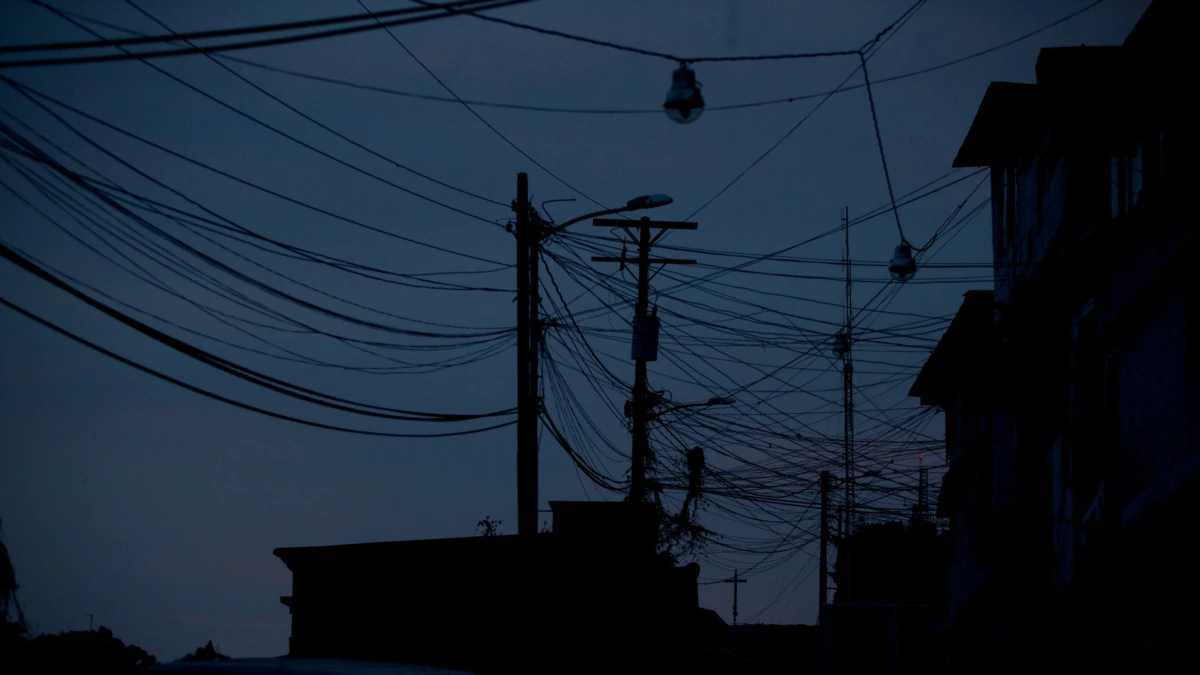The collapse of public services continues to severely affect the quality of life of Venezuelans. Most of them live with concern, under the shadow of the massive blackout of 2019, charging batteries in the event of an eventual power failure, protecting their devices from the constant “lows”.
In fact, on Wednesday, March 23, in several states of Venezuela, a strong electrical “low” was reported through social networks.
The country, which according to specialists until 2008 had one of the best drinking water services and electrical system in Latin America, has suffered the consequences of lack of maintenance, investment and corruption.
Manuel Guevara, an electrical engineer and consultant in the electricity sector, maintains that the crisis has been “evolving” and that it is also an energy crisis.
“The electric company has been very affected by the crisis or the debacle of oil production, hydrocarbon refining, because the supply of essential fuels for thermal generation plants was reduced,” he said in a recent forum organized by the Institute of Parliamentary Studies Fermín Toro.
The expert stressed that in Venezuela the electricity service “has never been sustained with the rates” and has always been financed by the State, which, after a 75% drop in Gross Domestic Product (GDP) since 1999, was left without resources to finance it. .
“Corpoelec is a state monopoly company that lacks enough qualified professional technical-worker personnel to attend to both the operation, maintenance and expansion of the system. A good part of the staff has left the company because of the salaries they pay”, he highlighted.
In his opinion, the country, which is “stuck in precariousness”, has gone back 20 years in terms of “what we consume today, compared to what we consumed in 1999”, and underlines the absence of official information for some 11 years.
Guevara points out that in recent months the state electric company has made “specific investments”, focused on the transmission system, stopping the fall in maximum demand.
But he agrees with other specialists who have analyzed and presented proposals that there is a sustainable, permanent and national solution, as long as it is comprehensive, there is a leading participation of the private sector, international technical and financial assistance, staff are trained and the government is decentralized. electric sector.
“This integrality implies structural changes, political, macroeconomic changes, in the hydrocarbon industry; legal changes in the laws that govern the electric service and changes in the structure of the electric sector”, he warned.
On several occasions, the Government of Venezuela has attributed the situation to international sanctions, which prevent it from accessing spare parts, and to alleged sabotage and attacks against the electrical system.
Aixa López, representative of the National Committee of People Affected by Blackouts, which until the first week of March counted more than 400,000 power failures since 2019, considers it a “false” argument.
“You can sabotage one day, two days, three times, but three years of continuous sabotage? And who guards the national electricity service? It is guarded by our Armed Forces”, she stated in recent statements.
This week, Vice President Delcy Rodríguez assured that in 2021 the State recovered 22% of the country’s electrical system.
Connect with the Voice of America! Subscribe to our channel Youtube and turn on notifications, or follow us on social media: Facebook, Twitter and Instagram.






